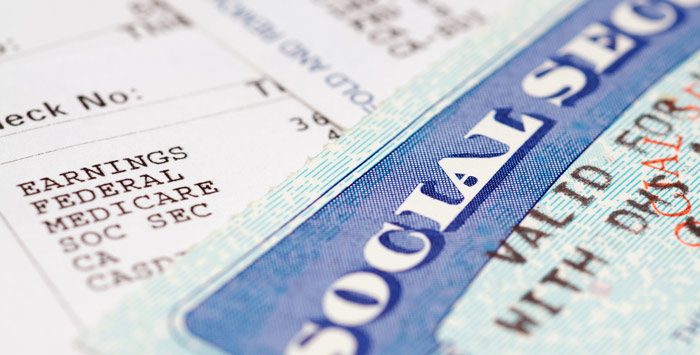Q. Can I enroll in Medicare if I have a health savings account?
A. Once you sign up for Medicare, you’re no longer eligible to contribute to a health savings account (HSA). So some people who have HSA-qualified employer-sponsored health insurance choose to hold off on enrolling in Medicare so that they can continue to contribute to their HSA.
Health savings accounts offer a great opportunity to sock away funds on a tax-free basis to pay for healthcare costs during your working years and retirement. Often confused with flexible spending accounts, HSAs do not require you to use up your plan balance year after year. In fact, the value of the HSA lies in your ability to invest your contributions and grow them into a larger sum over time. That way, when retirement rolls around, you’ll have savings specifically earmarked for medical expenses.
To be eligible to participate in an HSA, you must be enrolled in an HSA-qualified high-deductible health insurance plan (HDHP). These plans do not pay for any non-preventive care before the deductible is met, and the minimum deductible in 2025 is $1,650 for individual coverage, or $3,300 for family coverage. The maximum allowable out-of-pocket limit is $8,300 for single coverage and $16,600 for family coverage.
The maximum allowable HSA contribution in 2025 (for people who have HSA-qualified health plans) is $4,300 if your HDHP covers just yourself, and $8,550 if your HDHP also covers at least one other family member. The contributions can be made by you or your employer, but the combine contributions can’t be above those limits. If you’re 55 or older, you can contribute an extra $1,000 a year (not indexed for inflation).
HSA contributions get to grow tax-free once invested, and withdrawals are tax-free provided they’re used for qualified medical expenses. However, if you’re enrolled in Medicare, you’ll no longer be eligible to contribute to an HSA. Therefore, if you’re approaching your 65th birthday and still have access to an employer-sponsored HDHP, you may want to hold off on enrolling in Medicare (you will also need to delay Social Security benefits).
Should you enroll in Medicare or keep contributing to your HSA?
If you’re still working at age 65 and are covered by a group health plan at work, or have a spouse who is still working and whose group health plan you’re covered by, you don’t need to sign up for Medicare (provided your group health plan covers 20 employees or more; if it’s a smaller employer, Medicare will be primary and the group plan will be secondary, which means you’ll need to enroll in both Medicare Part A and Part B).
Normally, eligible Medicare enrollees who fail to sign up during the initial seven-month enrollment period leading up to and following their 65th birthday face lifelong Part B premium surcharges for enrolling late. That penalty, however, doesn’t apply if you have group health coverage in place when you turn 65. Rather, you get a special enrollment period for Medicare that begins once you separate from your employer or once your group coverage ends – whichever comes first.
That said, many 65-year-olds who have group health coverage sign up for Medicare Part A only, since there’s generally no premium attached to it. This way, Medicare serves as secondary insurance for hospital care. The main reason not to sign up for Part A when you’re still covered by a group health plan is if you’d like to continue funding an HSA, since you can’t do so once enrolled in any part of Medicare.
HSAs offer immediate tax savings, since contributions exclude a portion of your income from taxation the year they’re made. And the more money you put into your HSA, the more funds you’ll have available in retirement, when your medical costs start building. Therefore, if you’re eligible for an HSA and still actively making contributions, it might pay to delay your Medicare enrollment and continue reaping that benefit.
But you cannot continue making HSA contributions once your Medicare coverage kicks in (nor can your employer make HSA contributions on your behalf). If you’re enrolling in premium-free Medicare Part A, you’ll need to stop contributing to your HSA six months before you plan to enroll in Medicare. This is because your premium-free Medicare Part A will be backdated by up to six months (going back no further than the month you were first eligible). So if you don’t halt your HSA contributions half a year before enrolling, you may be subject to tax penalties on the funds you put into your HSA during that time.
So for example, let’s say you continue to work until age 67, are covered by your employer’s HDHP, and have continued making HSA contributions. Once you retire and transition to Medicare, your Medicare Part A coverage will be backdated to six months before your enrollment. That month — in other words, six months before you signed up for Medicare — would need to also be the month your HSA contributions ceased, to avoid having to pay tax penalties. So you’ll want to plan accordingly and wait to enroll in Medicare until six months after your last HSA contribution.
Some people make their full HSA contribution early the following year (the deadline is the tax-filing deadline). In that case, you would just need to prorate your HSA contribution for the year so that it doesn’t include the six months before you signed up for Medicare.
Can I still use my HSA funds after I enroll in Medicare?
Yes, you can use your HSA funds, pre-tax, to pay medical expenses after you’re enrolled in Medicare. You must stop contributing to your HSA once you’re enrolled in Medicare, but the money that’s in the account is yours to withdraw as needed, and will be tax-free as long as you use it for medical expenses.
You can use pre-tax HSA funds to pay your Medicare deductibles, copays, or coinsurance, or even your Medicare premiums (other types of health insurance premiums generally cannot be paid with pre-tax HSA funds, but Medicare premiums are an exception). With some limitations, you can even use the money in your HSA to purchase long-term care insurance.
Maurie Backman has been writing professionally for well over a decade, and her coverage area runs the gamut from healthcare to personal finance to career advice. Much of her writing these days revolves around retirement and its various components and challenges, including healthcare, Medicare, Social Security, and money management.
Footnotes
Tags: flexible medical account, fsa, health savings account, hsa



